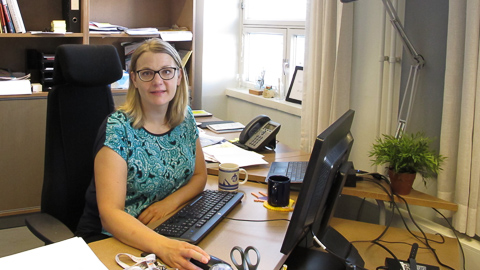Introducing New International Master’s Degree Programme: Nordic Cultural and Social Resilience
22.11.2017
The Master’s Degree Programme in Nordic Cultural and Social Resilience (NOCURE), tackles the questions of how societies react and adjust to cultural, environmental and social change.

The Programme provides an interdisciplinary environment for students, and equips them with in-depth problem-solving skills and critical expertise. These skills are taught by a problem-centred approach, in which students manage issues such as the effects of global warming, how to best enhance resilience, how digitalisation can contribute to preservation and transmission of cultural heritage, and much more.
The Programme consists of modules, which focus on cultural, environmental and societal themes in relation to sustainability and resilience. These themes are also applied on local, regional and global levels. The Programme graduates will be able to manage complex phenomena related to social change and resilience, for the benefit of future societies.
– Students can determine the direction of their studies independently, as they are encouraged to pick complementary courses that support their interests in relation to the degree. The interdisciplinary nature of the programme enables students to combine different themes into their degree, which is greatly beneficial in the future working life, describes Academic Director of the Programme Nina Tynkkynen.
The Programme’s teaching methods are interactive, and there is little traditional teaching, says Tynkkynen. Students will actively participate in group projects, create individual presentations, and take parts in different kinds of projects during their studies.
– You can develop your working life and research skills while you study in a safe and inspiring environment, which will further strengthen both your independent and group working abilities, continues Tynkkynen.
The Programme teaches both theoretical and practical skills, which students will learn during their studies. As experts of the field, they will have the abilities to analyse resilience-related issues, apply interdisciplinary conceptualisations and research approaches, to formulate research problems, and to generate new knowledge based on their expertise.
In practice, students will be able to collect and use different kinds of research data, present analyses in a scientific way, think analytically and apply problem-solving skills, and to do collaborative or organisational work.
There are multiple different career paths available after graduation, such as research and politics in both national and international level, institution and organisation positions in private and public sectors, and non-governmental organisations and media careers.
Applying for Master’s Degree in Nordic Cultural and Social Resilience at the University of Turku is an opportunity to receive high-quality education and study in an inspiring, interdisciplinary environment. The application period begins on 1 December and ends at 31 January 2018.
The Master’s Degree Programme in Nordic Cultural and Social Resilience is one of the 13 international Master’s degree programmes available for international students at the University of Turku.